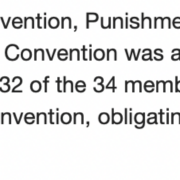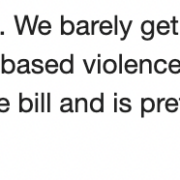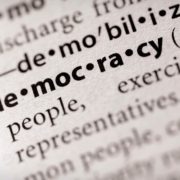Published in Culture Clash — a weekly column in The Tribune — on September 20, 2017
When we talk about climate change, it is often in limited, abstract ways. Climate change is not just about the temperature, land mass, or sea levels.
The effects of climate change include economic loss, changes in atmospheric concentration, and cultural loss.
The Bahamas, being an archipelagic nation and a small island developing state, must acknowledge climate change as a real and present threat — not one that may materialise in a century. This hurricane season has turned up the volume on conversations about climate change, though the focus has been more on adaptation than mitigation.
Most people are thinking about ways we can build differently so we better withstand hurricanes, but we also need to think about the ways we contribute to the problem as well as changes in policy and personal practices we need to make. For us to take climate change seriously, we need to know exactly what it is and how it affects us.
What is climate change?
Climate change does not refer to weather conditions. Weather changes from day to day and place to place while climate is the usual weather of a place. Climate can change according to seasons. Climate change, then, is the change in the usual weather of a place. This change could be temperature in a particular season, the amount of rainfall over a period of time, or the frequency and intensity of storms.
Global average temperature is currently around fifteen degrees celsius, and we know it has been higher and lower before. The problem is the rapid increase we are experiencing. Research shows that temperature has increased by 0.8 degrees celsius from the late 19th century to now, and seventy-five percent of that increase was only in the last 30 years. This exponential increase that can only be attributed to human activity.
What causes climate change?
Climate can change due to changes in the sun, or the ocean, but we also affect climate through our daily activities like driving and burning coal. When we burn fossil fuels, which emit carbon dioxide, gases are released that heat the air. The problem here is that only so much carbon dioxide can be naturally absorbed. We complicate it further when we clear land, getting rid of trees that are one of the best carbon-absorbing resources. Not only are we releasing more of this gas, but we’re depleting the earth of its natural fix.
While industrialized countries are the main producers of greenhouse gases, Caribbean countries consume the largest amounts of fossil fuels in the region for the production of electricity. Here is our reality: our countries are at the greatest risk and are least able to adapt to climate change.
How does it affect The Bahamas?
We can see the effect of climate change, from beach erosion to coral reef bleaching. In the name of development, we have given up much of our protection in the form of mangroves. We have paid little attention to food security, believing our proximity to the US will feed us forever. We have not been realistic, or thought about the impact of our decisions on our existence as a country.
Climate change means more than unbearably hot summers and higher electricity bills because air conditioning feels like a necessity. As the earth’s temperature rises, we will experience more than warmer weather (while other places may get colder or experience other weather changes), but other things happen that we do not see from here. Ice will melt, resulting in rising sea levels.
Eighty percent of The Bahamas is less than one meter above sea level. To put this in perspective, if the Greenland Ice Sheet melts, sea levels will rise by six meters.
In a 2002 report, The Caribbean Planning for Adaptation to Global Climate Change Project named increases in the number and intensity of storms, heavy rainfall in the north and drought in the south, and land loss due to rising sea level as major concerns for The Bahamas.
The 2017 hurricane season has already shown us that we are not prepared for the effects. Unless we intend to be climate refugees, we need to listen to scientific facts, use technology, and build innovative systems for mitigation and adaptation in response to climate change.
What can we do?
Though it may not be our favourite thing to think about, discuss, or act on, we all know a little something about the environment and how we impact it. We need to do a better job of using what we have.
One of our greatest resources, and one we tend to think about in terms of tourism only, is the sun. We can significantly reduce the amount of fossil fuels we burn by switching to solar power.
This, of course, comes with other benefits like reduced cost (over time) of power generation and less frequent interruption of power.
In his contribution to the United Nations Climate Summit in New York City in September 2014, former Prime Minister Perry Christie called on “developed” nations to honour their commitments to climate finance support to assist vulnerable countries like The Bahamas.
We need to familiarise ourselves with the Paris Agreement on Climate Change which The Bahamas ratified in August 2016 and consider the effect of the US withdrawing from the agreement.
In its Manifesto, the Free National Movement referenced climate change and the vulnerability of these islands. The party promised, among other things, creation of a Ministry of the Environment, implementation of a Waste-to-Energy programme, phasing out of plastic bags by 2020, and properly testing emissions.
Has there been discussion about any of these commitments since May 10, 2017? When should we expect work to begin? Are we doing our duty, as citizens of The Bahamas, to remind this administration of its commitments and demand that they are met? Are we paying attention to our representatives’ participation in global meetings and agreements, and creating an environment where consultation with the Bahamian people and reports on these meetings are the norm? What are we doing to hold our representatives to account?
In his address at the COP 22 conference, former Minister of Foreign Affairs Fred Mitchell said, “Climate change is not an esoteric matter but an existential one”.
Indeed, climate change is a threat to our existence, and we must treat it as such. Let’s not forget our responsibility to govern our own behaviour. Let’s not relax and wait for our representatives to do what must be done.
Be mindful in use of energy and water, reduce waste by being a more conscious consumer, learn more about climate change and its effects, and call on our representatives to fulfil the commitments made in the FNM Manifesto’s section on the environment.











Leave a Reply
Want to join the discussion?Feel free to contribute!